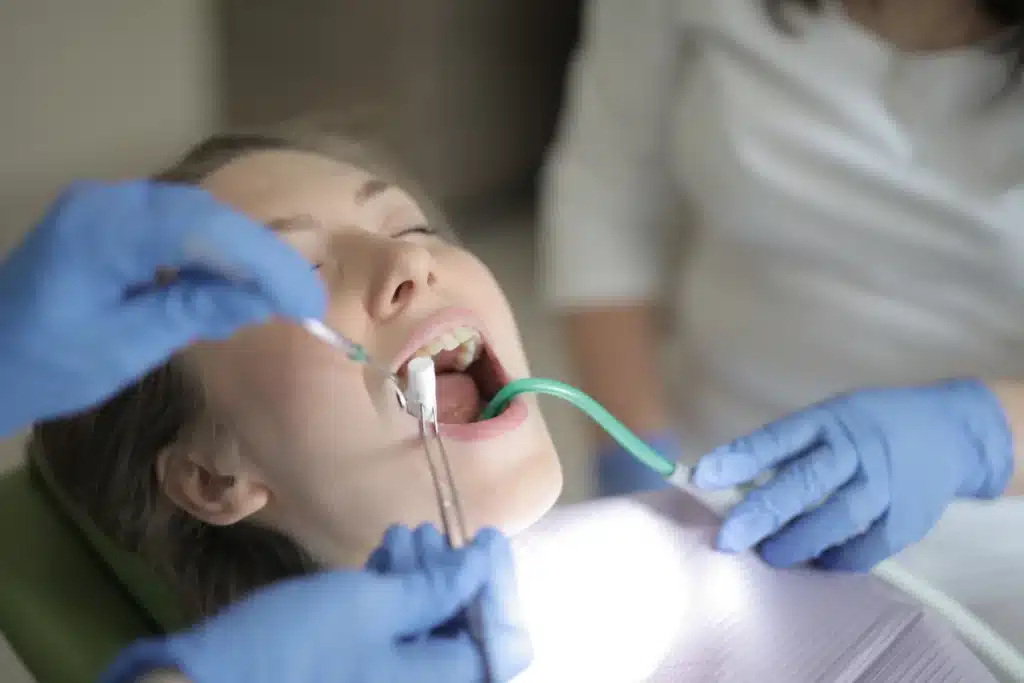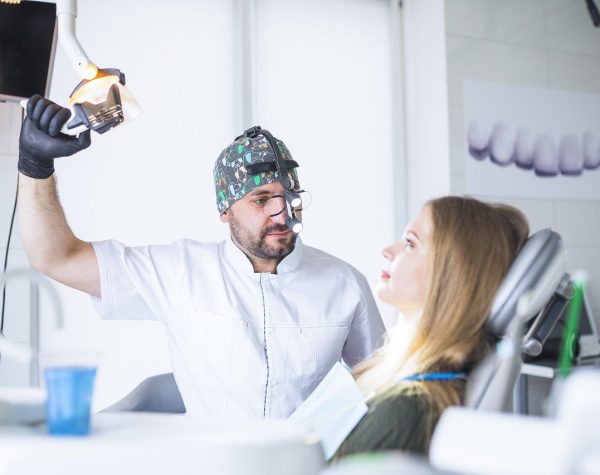What Do Dentists Use to Numb: Dental Numbing Shots and Numbing Injections
Dental procedures often involve concerns about pain, especially when injections are part of the process. The idea of getting a numbing shot can leave patients in hesitation or anxiety. First of all, dental anesthetics—specifically local numbing shots—are routinely used to help prevent pain during healing. These shots are used to prevent pain in selected areas in the mouth so that procedures like fillings, root canals, crowns, or even deep cleanings can be performed effectively and with little discomfort.
The intent of this guide is to give clear and practical information for patients regarding how numbing shots work, what substances are used, and what the patient can expect to encounter beforehand, during, and after the injection. From routine appointments to more involved treatments, being informed about dental anesthesia can help you feel a lot more confident and a lot more smooth regarding your dentist’s appointments.
What Are Dental Numbing Shots, and Why Are They Used?
People generally recognize the tingling sensation which appears as local anesthesia pertains to dental procedures. The purpose of dental injections is to provide pain-blocking effects which produces a comfortable treatment experience.The use of dental numbing shots primarily aims to achieve five purposes.
- Fillings
- Root canals
- Crown placements
- Extractions
- Deep cleanings
When dental clinics administer these injections, treatment becomes efficient and causes very minimal discomfort.

What Type of Anesthesia Do Dentists Use?
Most dental visits involve local anesthesia—a numbing shot that targets only the treatment area. But in some cases, other types of anesthesia may be used:
Topical anesthesia: The use of a numbing gel on the gum surface prior to the injection for calming the discomfort of the needle.
Sedation (oral or gas): Oral medications or nitrous oxide/laughing gas are used to help relax patients when they have a longer or more stressful treatment.
General anesthesia: Used in rare cases. Administered in hospital infrequently in rare cases for the purpose of a surgical procedure or for a patient with extreme dental anxiety. It makes the patient unconscious completely.
Your dentist will always choose the safest and most appropriate method for your needs.
What to Expect When Getting a Numbing Shot at the Dentist
If it’s your first time getting a numbing shot for a dental procedure or you’re feeling nervous, here’s what the process usually looks like:
- A topical numbing gel is first used to numb the surface of the gum.
- Then, the anesthetic is injected using a fine needle beneath the tissue.
- There will be a light pinch or mild pressure but not actual pain.
- The targeted area goes numb within minutes, letting the dentist start the procedure.
Your dentist will always check to make sure you’re comfortable before starting any procedure.
Do Dentists Use Numbing Gel Before the Injection?
Yes—this is one of the most frequently asked questions, and the answer is absolutely.The dental professional applies topical numbing gel to the gums prior to administering the injection. The application of this numbing gel minimizes all pain sensations from the numbing shot procedure. Most people who experience the injection describe a small sense of pressure or a soft pinching sensation at most.

What Drugs Do Dentists Use to Numb the Mouth?
Today’s dental anesthetics are safer, faster, and more effective than ever. While Novocaine was once commonly used, modern dentistry relies on better options.
Here are the most common dental numbing shots used:
- Lidocaine (Most Widely Used)
- Articaine
- Mepivacaine
- Bupivacaine
Each drug has its unique benefits, and your dentist will choose the right one depending on your procedure and health history.
Xylocaine vs. Lidocaine: Are They the Same?
Yes—Xylocaine is a brand name for Lidocaine, one of the most widely used dental anesthetics. If your dentist mentions either, they’re referring to the same type of drug. It’s fast-acting, safe, and highly effective for local numbing.
How Long Does a Dental Numbing Shot Last?
Another top concern is: “How long does numbing last after the dentist?”
Most people stay numb for 1 to 3 hours, though this can vary slightly based on: the type of anesthetic use, the area being treated, patients individual response to the medication.
Nevertheless, if your procedure is longer, your dentist may administer an additional shot to keep your numbness. It doesn’t matter; it will fade away gradually. Within a few hours you’ll feel that you are normal again.
What to Expect After Your Numbing Shot?
Once your procedure is done and the anesthesia is still active, you may:
- Feel numbness in your lips, cheek, or tongue
- Experience mild tingling or heaviness
- Notice you’re drooling a bit—totally normal!
Until the feeling returns:
- Avoid chewing gum or eating
- Don’t drink hot beverages
- Be mindful of accidental biting

What are the Side Effects from Dental Numbing Shots?
Dental numbing shots generate minimal risks however several patients might experience these small adverse effects from medicines such as:
- The needle area may cause light edema and discoloration.
- Tingling or prolonged numbness
- Slight increase in heart rate (especially with epinephrine-containing anesthetics)
- Dizziness or lightheadedness (uncommon)
When to Call Your Dentist:
Obtain immediate dentist contact if you develop persistent numbness after 5 hours or your swelling continues to increase and you notice any allergic signs that include rash or trouble breathing.
Call today to schedule a consultation!
(425) 998-8109
Conclusion
Understanding how dental numbing shots work can help allay some of that anxiety and make your next dental visit less stressful. Dental procedures can be managed with safe and effective pain control that is widely used – local anesthesia. Supportive methods such as topical gels and sedation are also used by dentists so patients have the most comfortable experience possible.
Knowing what to expect regarding the application of numbing gel, the length of the anesthesia and so forth will help you feel more prepared and confident. If you are concerned about any anesthesia options, it is always best to talk to your dentist before treatment as to clear things up. This is key; clear communication and personalised care will help the experience to be as comfortable and pain free as possible.
FAQ's About Dental Numbing Shots
1. Is it safe to receive numbing shots while pregnant?
In most cases, yes. Lidocaine is among the safe anesthetics which dentists administer during dental procedures while every expecting patient should inform their healthcare provider about their condition.
2.Do dentists use lidocaine or novocaine?
Dentists now use Lidocaine instead of Novocaine.
3.Can you have an allergic reaction to dental anesthesia?
Drug allergies related to dental treatments happen rarely. Telling your dentist about existing allergies as well as reaction history to medicines or anesthesia is essential.
4.Does it hurt to get a numbing shot in your mouth?
Dentists apply a topical gel before giving the numbing shot, reducing discomfort. You may feel a slight pinch, but it is brief, and most people do not find it painful.
5.Why don’t dentists use novocaine anymore?
Dentists have moved away from using Novocaine and now use more advanced numbing agents like Lidocaine.
6. What should I do if numbness lasts longer than expected?
Contact your dentist immediately whenever numbing lasts longer than 4–5 hours or seems different from usual numbness after tooth procedures. Most of the time this condition is not harmful yet patients should seek confirmation from their doctor.
7. Can I refuse a numbing shot?
Yes, but it’s not recommended for procedures that involve pain. Talk to your dentist about alternative comfort options like sedation or laughing gas.

